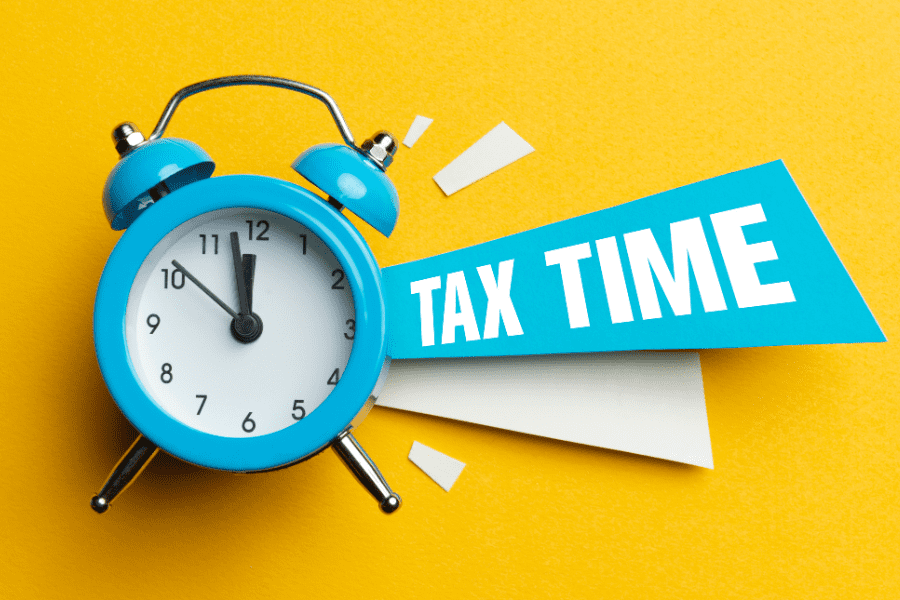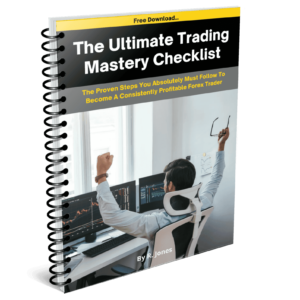Forex trading has become increasingly popular in the United Kingdom, attracting many individuals looking to make profits from currency fluctuations.
However, with this popularity comes a need for clarity on tax regulations and obligations that traders must adhere to.
This article aims to provide insight into tax on forex trading in the UK. The taxation of forex trading in the UK can be complex, as it involves multiple factors such as income tax, capital gains tax, and stamp duty reserve tax.
Traders must understand their responsibilities regarding taxes and keep accurate records of all transactions to avoid any potential legal issues.
Furthermore, there are different rules for those who trade forex as a hobby versus those who do so professionally, which adds another layer of complexity to the topic.
As such, it is crucial for traders to have a comprehensive understanding of the applicable laws and regulations surrounding tax on forex trading in the UK.
Overview Of Forex Trading Taxes In The Uk
Foreign exchange (forex) trading is a popular investment activity in the UK, with many individuals and businesses engaged in buying and selling currencies to generate profits.
However, forex trading taxes can be complex and confusing for beginners, which may discourage them from pursuing this lucrative opportunity.
In this section, we will provide an overview of forex trading taxes in the UK and highlight some essential factors that traders need to consider.
One critical aspect of forex trading tax regulations in the UK is understanding how much tax you are liable to pay on your earnings. To calculate your forex trading tax liability accurately, you should use a reliable forex trading tax calculator designed specifically for the UK market.
This tool considers various factors such as income brackets, capital gains allowances, deductible expenses, and other relevant variables that affect your overall tax bill.
Another crucial consideration when it comes to forex trading taxes is knowing how to avoid paying more than necessary. Although there’s no way to completely evade taxes legally, you can take advantage of various strategies to minimize their impact on your bottom line.
For instance, one effective method is by investing through offshore brokers or companies based in countries that offer tax-free conditions for foreign investors.
Additionally, traders must understand how to report their forex income correctly on their tax returns and make timely payments to HM Revenue & Customs (HMRC).
In conclusion, navigating forex trading taxes can seem daunting at first glance but doesn’t have to be if approached systematically.
By arming yourself with knowledge about different aspects such as calculating liabilities using specialised tools like Forex Trading Tax Calculator or taking advantage of international markets’ lenient policies towards taxation risk minimization techniques such as offshore investments – these topics discussed above- traders can gain confidence while minimizing risks associated with large financial transactions regarding taxation obligations they owe under law!
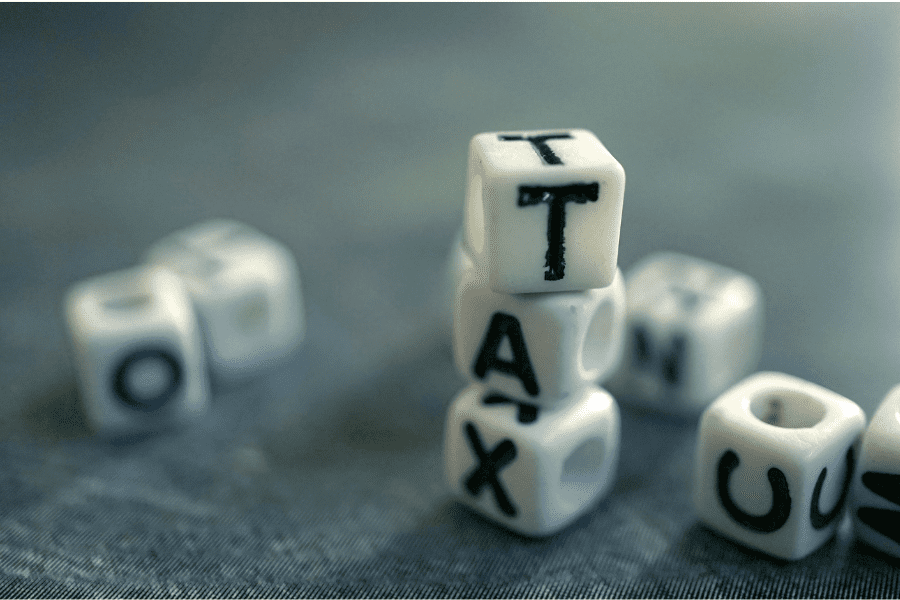
Understanding Tax Implications Of Forex Trading
According to a report by The Guardian, the UK’s forex trading industry has seen tremendous growth over the years. In 2019 alone, it was estimated that traders in the country had made an average of £1.3 billion daily through foreign exchange dealings.
However, as with any form of income-generating activity, taxes are due on profits made from forex trading. As an individual engaged in forex trading in the UK, you must understand your tax obligations and how they impact your earnings.
One way to do this is by using a forex trading tax calculator.
This tool helps you estimate the amount of tax payable based on your profits or losses within a given period. It takes into account factors such as income tax rates, capital gains tax rates, and allowances available for different types of traders.
While some may wonder if forex trading is entirely tax-free in the UK, the truth is that there are no exemptions for this type of investment income.
Therefore, regardless of whether you trade full-time or part-time and earn a profit from spread betting or CFDs (Contracts for Difference), you will be required to pay taxes on your earnings.
Failure to comply with HM Revenue & Customs (HMRC) regulations could result in penalties and legal action against you.
Thus, it is essential to learn how to avoid tax while still being compliant with relevant laws by consulting professional financial advisors and reporting all forex income accurately on your annual self-assessment tax return.
In summary, understanding the tax implications of forex trading in the UK is crucial for every trader looking to maximize their profits legally while avoiding unnecessary risks associated with violating HMRC rules.
By using tools like a forex trading tax calculator and seeking expert advice when necessary, individuals can navigate these complexities effectively and achieve long-term success in their ventures without worrying about facing hefty fines or other negative consequences related to non-compliance with relevant regulations governing this sector.
HMRC Classification Of Forex Trading Profits
Understanding the tax implications of forex trading is crucial for any trader who wants to avoid getting into trouble with the authorities.
HM Revenue and Customs (HMRC) in the UK has specific rules on how profits from forex trading are taxed, which differ from other types of investments. It is important to understand these rules before starting to trade as failure to comply can lead to hefty fines or even prosecution.
One way of understanding your tax liabilities when it comes to forex trading is by using a forex trading tax calculator. This tool will help you estimate how much you owe based on your income, expenses, and gains from trading.
Additionally, there are ways to legally minimize your tax obligations such as setting up a company structure or forming an offshore entity in countries that offer forex trading tax-free status.
It is essential to report all your earnings from forex trading accurately on your tax return forms. Failure to do so might result in penalties and interest charges levied against you by HMRC.
Additionally, traders should be aware of contracts for difference (CFD), which have different taxation rates than standard stock trades due to their leveraged nature.
Overall, accurate reporting and compliance with regulations can ensure traders stay clear of legal issues while maximizing their returns through effective taxation strategies.
Consult with a tax professional for expert advice on forex trading taxes.

What Does HMRC Look To Tax Forex Traders?
Forex trading has become an increasingly popular investment option for many individuals. However, with the potential gains come tax implications that forex traders must understand and comply with.
The UK’s HM Revenue & Customs (HMRC) is responsible for enforcing tax laws related to forex trading in the country.
One way to determine how much tax a trader owes on their forex profits is by using a forex trading tax calculator.
This tool can help traders estimate their taxable income and capital gains based on their trades throughout the year. It takes into account factors such as trade volume, exchange rates, and transaction fees.
While paying taxes is mandatory, some traders may be able to reduce their tax liability through various legitimate means. For instance, they could consider trading through a company or opening a self-invested personal pension (SIPP).
Additionally, it’s worth noting that there are several countries where forex trading is considered tax-free or subject to minimal taxation.
Traders who want to avoid high taxes may choose to move operations overseas or operate from these jurisdictions instead.
Ultimately, reporting forex income on a tax return requires careful attention to detail and compliance with all relevant regulations. Ignoring one’s obligations can lead to significant penalties down the line.
Forex traders should seek professional advice if they’re unsure about any aspect of their tax situation before making decisions that impact their financial future.
Minimum Tax Requirements For Forex Trading In The Uk
Forex trading is a popular investment option for individuals looking to diversify their portfolio. However, like any other financial activity, forex trading in the UK requires adherence to certain tax regulations.
One of the primary concerns among traders is the minimum tax requirement for forex trading.
The minimum tax requirement for forex trading in the UK varies based on an individual’s income and gains from trading activities. If an individual’s total income from all sources exceeds £12,570 for the 2021/22 fiscal year, they are required to pay income tax on their earnings from forex trading.
Additionally, if an individual’s gains exceed £12,300 per annum or more than four times their annual exemption limit (£49,200), they will be subject to capital gains tax as well.
It is important to note that there are various deductions available while calculating taxable income from forex trading such as expenses incurred during trades or losses sustained. Thus, it can be beneficial for traders to keep a detailed record of their transactions and maintain accurate accounts throughout the year.
By adhering to these requirements diligently, traders can ensure compliance with legal obligations while minimizing taxation liabilities associated with forex trading.
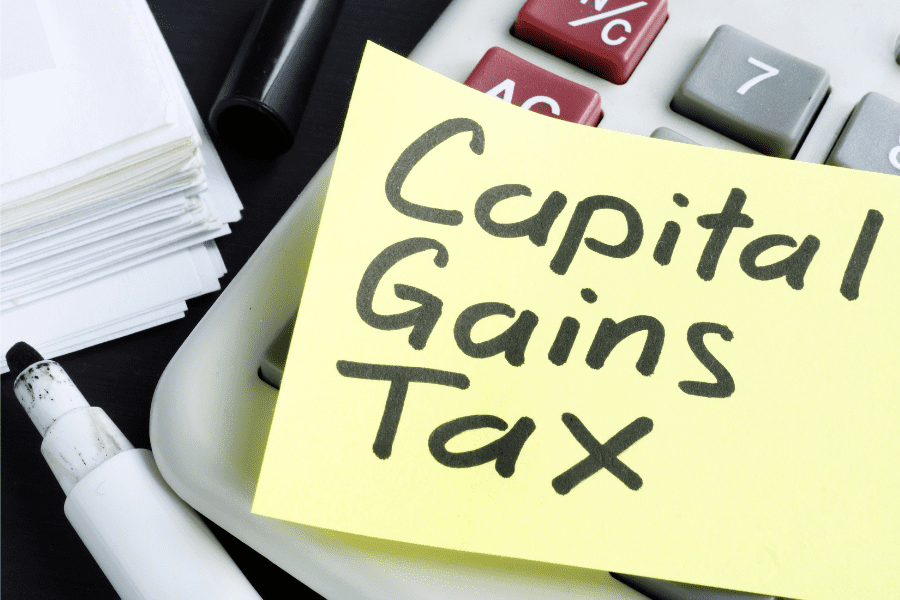
Capital Gains Tax Breakdown
When it comes to forex trading in the UK, capital gains tax (CGT) is a significant consideration. CGT applies when you dispose of or sell an asset that has increased in value since you acquired it.
In other words, if your profits from forex trading exceed your capital allowances and exemptions for the year, you will be liable to pay CGT on those profits.
The current rate of CGT in the UK stands at 20% for higher-rate taxpayers and 10% for basic-rate taxpayers. It’s also worth noting that there are certain assets that are exempt from CGT, such as government bonds and lottery winnings. However, forex trading isn’t one of them.
To calculate your CGT liability from forex trading, you’ll need to subtract your annual exemption amount (£12,300 for the 2021/22 tax year) from your total taxable gain.
This figure can then be taxed at either the basic or higher rate depending on which band you fall into.
While taxes may seem like a burden to some traders, they are necessary to maintain a functioning society with public services available for everyone’s benefit.
Capital Gains Tax Treatment For Forex Trading
For individuals who trade forex as a personal investment, the gains are usually subject to capital gains tax.
This means that if an individual makes a profit from their forex trades, they must report it on their annual tax return and pay taxes accordingly.
However, losses can also be claimed against future profits to offset some of the tax liabilities.
On the other hand, those who engage in forex trading as a business may have different tax obligations. In this case, profits made from forex trading would be considered part of their taxable income rather than being treated as capital gains.
As such, businesses engaged in forex trading may be eligible for additional deductions and allowances when calculating their overall tax liability.
To summarize, anyone engaging in forex trading should understand their potential tax obligations under UK law.
Although there are many variables involved in determining how much an individual or business will owe in taxes related to their forex trades, understanding these rules is important for maintaining compliance with local regulations while minimizing unnecessary financial burdens.
Ultimately, proper planning and informed decision-making can help traders achieve success while avoiding costly mistakes related to taxation.
Income Tax For Forex Trading
Having discussed the breakdown of Capital Gains Tax, we now move on to Income Tax for Forex Trading in the UK. It is important to note that if trading forex is your primary source of income, you will be subject to income tax rather than capital gains tax.
Income tax rates vary depending on your total earnings and there are different bands with varying percentages. For example, individuals earning up to £12,570 annually are eligible for a personal allowance and do not have to pay any income tax.
However, those earning between £12,571 – £50,270 fall under basic rate band and must pay 20% income tax. On the other hand, higher earners whose annual income exceeds £150,000 must pay an additional 45% income tax.
Forex traders who trade through companies or limited liability partnerships may also benefit from reduced corporation tax rates which currently stand at 19%.
Nonetheless, it is crucial to consult with a qualified accountant when filing taxes as they can provide valuable advice on maximizing deductions and minimizing liabilities while ensuring compliance with HMRC regulations.
Overall, understanding how taxation works in forex trading is essential for traders operating within the UK market.
Corporation Tax For Forex Trading
Metaphorically speaking, forex trading is like a game of chess where every move counts. Likewise, corporations that engage in forex trading must be aware of their tax obligations and the impact it may have on their overall financial status.
Corporation Tax refers to the tax paid by companies based on their profits. Forex traders who operate as a corporation are required to pay Corporation Tax on their profits earned from forex trading activities.
The rate of Corporation Tax for 2021 is 19%. However, if a company’s taxable profit exceeds £50,000 per year, there will be an additional surcharge applied to the standard rate.
It is important for corporations engaging in forex trading to keep accurate records of all transactions throughout the financial year.
This includes details such as gains or losses made on each trade, expenses incurred during trades and any other relevant information pertaining to income received from forex trading activities.
By keeping track of these details, corporations can ensure they meet their tax obligations whilst also maintaining profitability in what can often be volatile markets.

Private Investor And Speculative Trader Taxation
In the United Kingdom, private investors and speculative traders are required to pay tax on their profits from forex trading. The tax treatment of these individuals depends on whether they are classified as investors or traders by HM Revenue & Customs (HMRC).
Investors who hold forex investments for long-term capital growth typically pay Capital Gains Tax (CGT) when they make a profit. The amount of CGT that an investor pays is calculated based on the difference between the purchase price and sale price of the asset. I
If an individual makes a gain above the annual CGT allowance, then they must report this to HMRC using a self-assessment form. However, if an investor incurs losses, it can be used to offset future gains which would lower their overall tax liability.
In contrast, speculative traders who actively trade in foreign currencies with the intention of generating short-term gains usually pay Income Tax.
Speculative traders pay income tax on their net trading profits after deducting any allowable expenses such as software subscriptions or internet charges.
It’s important for both investors and traders to keep accurate records of all transactions made so that they can accurately calculate their tax liabilities.
Overall, taxation for private investors and speculative traders can be complex but it is essential to comply with UK regulations to avoid potential fines or penalties.
By keeping proper records and understanding how taxes work in forex trading, individuals can ensure that they’re paying only what’s owed while maximizing their returns within the confines of the law.
Tax And Profit On Forex Trading
Forex trading has become increasingly popular in recent years, as it allows people to make money without having to invest large amounts of capital.
It is also highly accessible, with a wide range of platforms and brokers available online that offer all the tools and resources necessary to conduct successful trades.
Despite its growing popularity, however, forex trading can be risky if not done correctly. This is due to the fact that investors are exposed to market volatility and fluctuations in currency values.
Therefore, it is important for potential traders to understand the risks involved before entering into any transaction.
In order to maximize profits from forex trading, an investor must have strong knowledge of technical analysis and fundamental analysis techniques.
Technical analysis involves studying past price movements in order to identify patterns or trends which could indicate future direction of prices.
Fundamental analysis focuses on economic factors such as interest rates, inflation levels and political events which can affect currency values.
With these skills combined with risk management strategies, a trader can increase their chances of success when engaging in forex trading activities.
To ensure success at this endeavor requires dedication and commitment but those who take proper precautions will find it rewarding over time.
How To Reduce Taxable Income With Forex Losses
Having discussed the potential upsides and downsides of forex trading, it is important to consider the taxation process for those engaging in such activities within the UK.
As with any form of investment or income-generating activity, taxes must be paid on profits made from online forex trading:
- Income tax – all profits generated by a trade are subject to income tax;
- Capital gains tax (CGT) – this applies when an asset has been sold at a profit;
- Stamp Duty Reserve Tax (SDRT) – payable on securities transactions only; and
- Value Added Tax (VAT) – applicable if you have not registered as a VAT trader.
It is essential that traders are aware of their obligations under HM Revenue & Customs regulations, so they can ensure they remain compliant while capitalising on available opportunities in the markets.
Furthermore, individuals should take note of the deadline dates associated with filing returns and paying taxes due, ensuring accuracy throughout the process. In order to make life easier during times where accurate record-keeping becomes increasingly challenging, investors may wish to employ professional services which can help them manage their portfolios efficiently.

Tax Free Countries For Forex Trading
Forex trading is a global phenomenon, and the tax implications can vary depending on your country of residence.
For those looking to trade forex without worrying about taxes, there are several tax-free countries that traders can consider.
One such country is the Bahamas, where individuals do not pay income or capital gains taxes on their earnings from forex trading. The government in this island nation has long been known for its favorable business climate and investor-friendly policies.
Additionally, Belize also offers tax exemptions to international investors and businesses operating within its borders.
Another popular destination for forex traders seeking a tax haven is Dubai in the United Arab Emirates (UAE). The UAE boasts one of the most competitive business environments in the world with no personal income tax or corporate taxation.
This makes it an attractive option for forex traders who want to keep more of their profits.
In conclusion, there are several tax-free countries available for forex traders to choose from when considering where to base their operations.
Some popular options include the Bahamas, Belize, and Dubai as they offer favorable business conditions coupled with low or no taxation rates.
By doing proper research into these destinations before making any moves, traders can ensure they take full advantage of all possible benefits while minimizing potential risks associated with setting up shop abroad.
Strategies For Paying Tax On Gains From Forex Trading
After tracking your forex trading performance, the next step is to prepare for tax payments on the gains. Paying taxes is a crucial responsibility of every citizen and helps fund public services such as healthcare, education, and infrastructure.
However, paying taxes can feel like an overwhelming burden, especially if you are not familiar with the process.
Fortunately, there are various strategies available in the UK that can help reduce your tax liability while remaining compliant with regulations.
One popular approach is using Individual Savings Accounts (ISAs) which allow you to invest up to £20,000 annually without being taxed on capital gains or income earned from investments.
Another option is offsetting losses against gains made during the same financial year or carrying them forward to future years.
In addition to ISAs and loss-offsetting techniques, seeking professional advice from a qualified accountant or tax advisor can help you navigate the complex rules surrounding forex trading taxation in the UK.
They will provide tailored guidance based on your individual circumstances and ensure that your tax returns comply with HM Revenue & Customs’ requirements.
By taking advantage of these strategies and expert support, you can effectively manage your tax obligations while enjoying freedom in pursuing profitable forex trades.
How To Avoid Tax When Trading Forex
Forex trading can be a lucrative venture that promises financial freedom. However, the tax implications of forex trading in the UK can quickly dampen this excitement.
The government requires individuals to pay capital gains tax on profits made from forex trading activities.
To avoid paying taxes while still benefiting from forex trading, one approach is to use spread betting or CFD (Contracts for Difference) platforms.
These platforms allow traders to speculate on currency pairs without owning them physically. Therefore, they fall outside the scope of capital gains taxation and are instead subject to stamp duty which is significantly lower than capital gains tax.
Another method is through incorporation. Traders can form companies and trade under their business name rather than as individuals. This way, they can take advantage of corporate tax rates, which are typically lower than individual income tax rates.
Additionally, by incorporating, traders will enjoy limited liability protection while reducing risks associated with personal assets being seized in case of bankruptcy.
Ultimately, avoiding taxes when trading forex requires careful planning and strategy implementation.
While it’s important to stay compliant with regulations set forth by the government authorities, exploring ways around hefty taxes helps enhance profitability levels leading to greater financial freedom over time.

How To Track Performance For Tax Purposes
Tracking performance is an essential part of forex trading as it helps in identifying the areas that require improvement and assessing one’s overall profitability.
Additionally, tracking performance also assists traders with tax purposes by providing a clear record of their profits and losses.
However, keeping track of every trade can be tedious and time-consuming, which is why there are various tools available to simplify the process.
One way to track performance is through journaling trades. A trading journal records all transactions made on each day, including entry and exit points, profit or loss incurred, and any other relevant information such as market conditions at the time of trade execution.
Journaling not only acts as a reference point for future analysis but also provides insight into patterns, allowing traders to improve their decisions over time.
Another method for monitoring performance involves using specialized software designed to analyze forex trades.
These programs offer features like real-time data feeds, automated alerts based on customized criteria, and advanced charting capabilities that help traders identify trends and patterns quickly.
With these tools’ assistance, compliance with tax obligations becomes manageable since they provide an audit trail necessary for filing accurate reports.
In conclusion, tracking forex trading performance is crucial for improving decision-making processes while maintaining compliance with regulatory requirements.
Traders have various options when it comes to tracking their progress; however, choosing between manual methods like journaling versus automated solutions depends entirely on personal preferences.
Regardless of the approach chosen, regularly analyzing past trades will undoubtedly yield better results in terms of profitability and overall success rates in the long run.
Tips For Paying Taxes On Forex Trading
After filing taxes for forex trading, it is important to consider the tips for paying taxes on forex trading in the UK. Taxation of profits made from forex trading can be complex and traders need to make sure they comply with HM Revenue & Customs requirements.
Here are some tips for paying taxes on forex trading in the UK:
- Keep detailed records: Traders should keep track of all transactions, including dates, amounts, currencies traded and exchange rates used.
- Understand tax rules: Forex trading profits may be subject to income tax or capital gains tax depending on the circumstances. It’s important to understand which category applies to each trade.
- Seek professional advice: If you’re unsure about how much tax you owe or what expenses you can claim against your profits, seek advice from a qualified accountant or tax advisor.
- Make payments on time: To avoid penalties or interest charges, make sure you pay any tax owed by the deadline.
By following these tips, traders can ensure that they stay compliant with UK tax laws while also minimizing their tax liability.
Remember that taxation laws can change over time so it’s important to keep up-to-date with any changes that may affect your obligations as a trader.
How To File Taxes For Forex Trading
If you are a forex trader based in the UK, it is important to understand your tax obligations. Forex trading profits may be subject to income tax or capital gains tax depending on the circumstances of each trade. Failure to comply with these regulations could result in hefty fines and penalties.
To properly file taxes for forex trading, traders need to keep accurate records of all trades made throughout the year. This includes information about the date, time, currency pairs traded, profit/loss amount, fees paid, and any other relevant details.
It is recommended that traders consult with a professional accountant or tax advisor who has experience dealing with forex trading taxes in order to ensure compliance with all applicable laws and regulations.
In summary, filing taxes for forex trading can be complex and daunting for those unfamiliar with the process.
However, by keeping detailed records and seeking advice from professionals when necessary, traders can navigate this aspect of their business successfully while avoiding potential legal issues down the line.
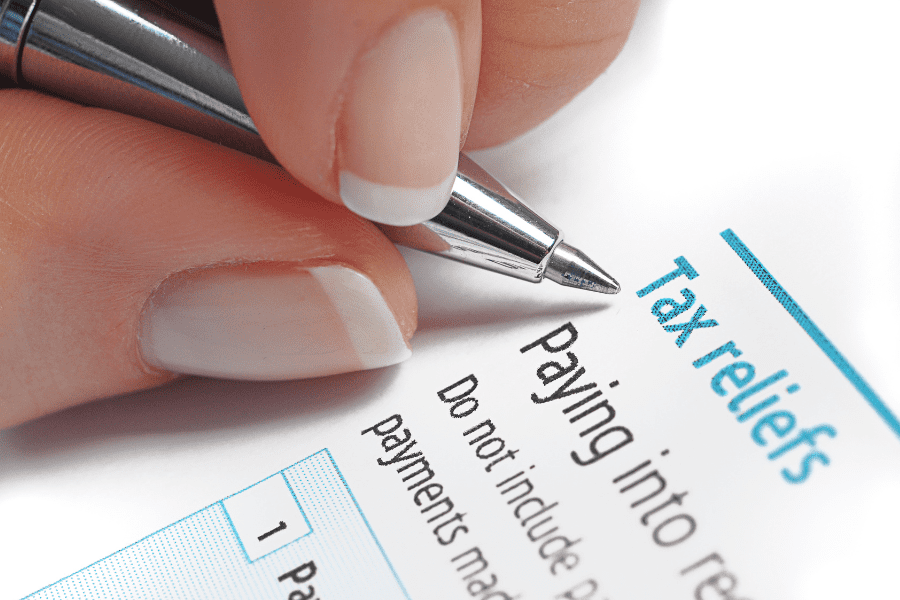
Frequently Asked Questions
Can I Claim Tax Relief On My Forex Trading Losses?
Tax relief on forex trading losses is a common question amongst traders.
In the UK, tax laws allow individuals to offset their trading losses against any profits made in the same financial year or carry them forward to offset future gains.
However, claiming tax relief for forex trading losses can be complex and depends on various factors such as whether the individual is considered a trader or investor by HMRC.
It is essential to keep detailed records of all trades and consult with a qualified accountant or tax advisor who has experience dealing with forex trading taxes to ensure compliance with regulations while minimizing tax liabilities.
Although it may seem tempting to avoid paying taxes altogether, it is crucial to understand that failure to pay taxes can result in severe legal consequences and jeopardize one’s financial position in the long term.
How Does Tax On Forex Trading Differ For Individuals And Businesses?
The taxation of forex trading varies between individuals and businesses, presenting unique challenges for each.
While the former may be subject to capital gains tax on any profits made from their trades, the latter could face a range of additional taxes such as corporation tax or stamp duty.
Furthermore, the distinction between these two categories is not always clear-cut, with many traders operating as sole proprietors within an informal business structure.
As such, navigating the complex web of regulations governing forex trading can be both confusing and time-consuming, requiring careful attention to detail and expert guidance in order to avoid potentially costly mistakes.
What Happens If I Fail To Declare My Forex Trading Profits To HMRC?
Failing to declare forex trading profits can result in legal consequences. The HMRC has strict regulations regarding tax reporting, and individuals who do not comply with these requirements may face severe penalties.
In such cases, the HMRC will conduct an investigation into the individual’s finances, which could lead to fines or even imprisonment.
It is essential for traders to understand their tax obligations and seek professional advice if needed. By staying compliant with tax laws, individuals can avoid legal issues and focus on maximizing their profits through successful trading strategies.
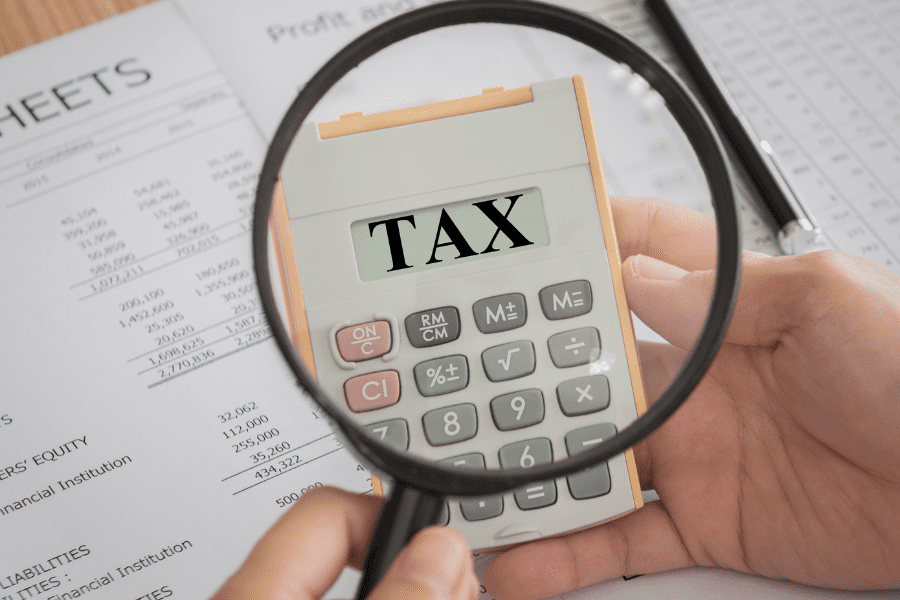
How Do I Calculate My Tax Liability On Forex Trading Gains?
Calculating tax liability on forex trading gains requires an understanding of the relevant tax laws, as well as a thorough knowledge of one’s individual circumstances.
The first step in this process is to determine whether forex trading falls under the category of capital gains or income for tax purposes.
Any profits made from forex trading may be subject to either Capital Gains Tax (CGT) or Income Tax, depending on whether it is considered investment activity or trade activity.
Once this has been established, traders must consider their personal allowances and any deductible expenses that can reduce their taxable income.
It is advisable to seek professional advice when calculating tax liabilities on forex trades to ensure compliance with regulations while minimizing unnecessary costs.
Are There Any Tax-Free Allowances For Forex Trading In The Uk?
Ironically, the UK government is not known for being generous when it comes to tax-free allowances. So, if you’re hoping to find a loophole that exempts your forex trading activities from taxation, then you may be disappointed.
The reality is that any gains made through forex trading are subject to capital gains tax and income tax in the UK. However, there are some reliefs available such as personal allowance and annual exempt amount which can help reduce the impact of taxes on your profits.
Nonetheless, it’s important to understand the rules and regulations surrounding forex trading taxation in the UK to ensure compliance with HMRC guidelines.
Conclusion
In conclusion, tax on forex trading in the UK can be a complex subject that requires careful consideration.
Whether you are an individual or a business, it is important to understand your tax obligations and ensure that you comply with HMRC requirements.
While there may be opportunities for claiming tax relief on losses incurred through forex trading, failure to declare profits could result in penalties and fines.
It is therefore crucial to keep accurate records of all trades and seek professional advice if necessary.
Although there are currently no tax-free allowances specifically for forex trading in the UK, individuals may still benefit from certain personal allowances when calculating their overall income tax liability.
In summary, navigating the world of forex trading taxation can be challenging.
However, by staying informed and seeking expert guidance where needed, traders can ensure they remain compliant while maximising their potential returns.

